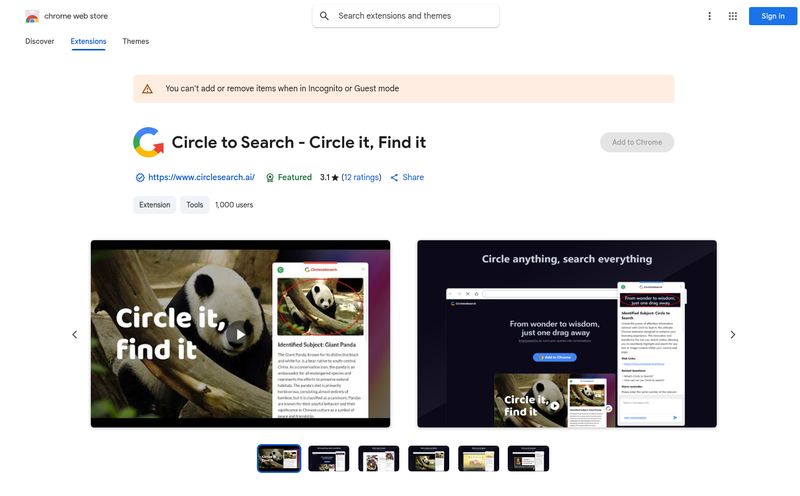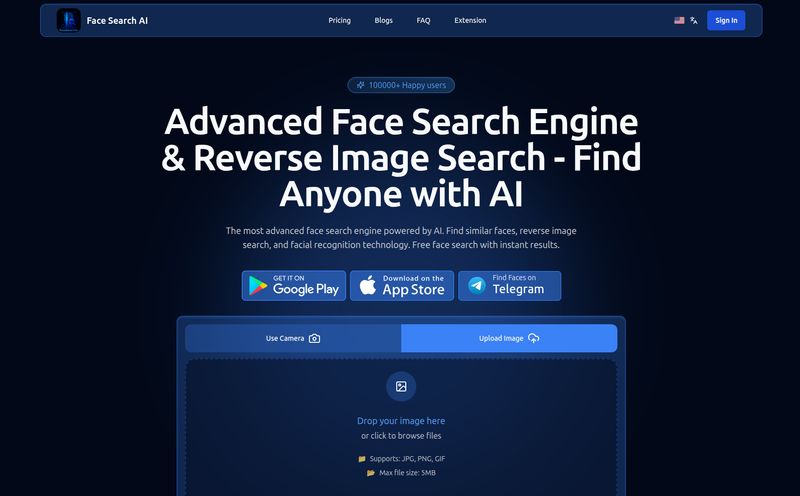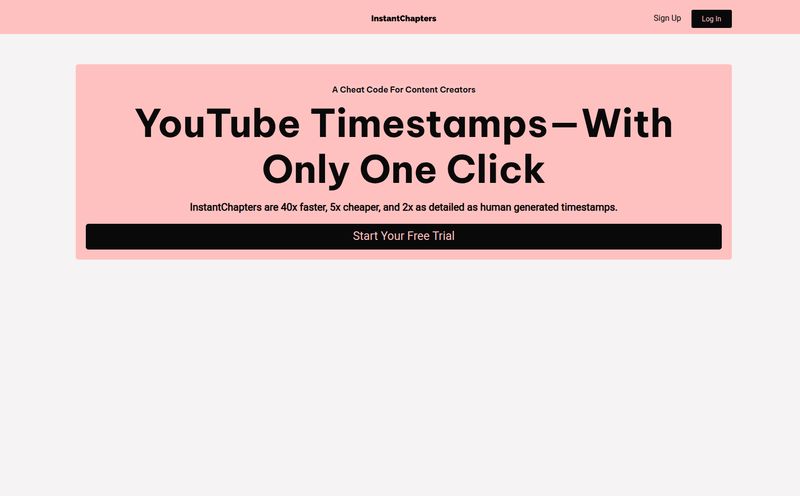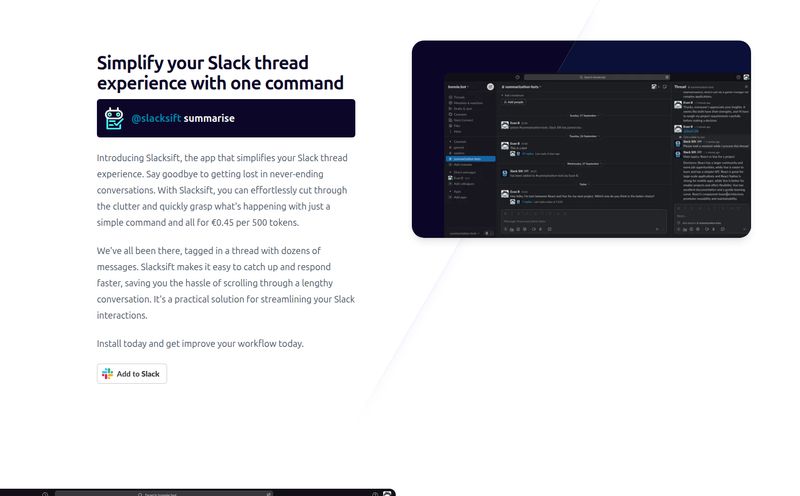How many browser tabs do you have open right now? If you’re anything like me—a professional researcher, content creator, and all-around internet sleuth—the answer is probably “too many to count.” For years, my workflow has been a chaotic dance: open Google, type in a query, click a link, skim, hit back, click another link, get frustrated, rephrase my query, and repeat. It's a process that eats time like nothing else.
We've all been there. You're trying to find concrete data for a blog post or get to the bottom of a complex topic, and you end up wading through an ocean of clickbait, thin content, and articles from 2015. It’s exhausting. So, when a new tool pops up promising to “Optimize Your Productivity & Time,” my ears perk up. The latest one to cross my desk is Xdash.ai.
It bills itself as a fast, AI-powered semantic search engine. That's a lot of buzzwords, I know. But the promise of real-time results and SEO-optimized summaries? That… that got my attention. Is this just another flash-in-the-pan AI gimmick, or could it genuinely change how we find information? I decided to take it for a spin.

Visit Xdash AI
What Even Is Xdash AI?
Before we go any further, let's break down what Xdash AI claims to be. At its core, it's not just a search engine; it's a search and synthesis engine. Think of it less like a traditional librarian who just points you to the right aisle and more like a research assistant who reads all the books in that aisle and gives you the key takeaways, complete with footnotes.
It uses what's called semantic search. In simple terms, instead of just matching keywords in your query to keywords on a page (the old way), it tries to understand the intent and context behind your question. You can ask it a full question, like “Are AI biases a reflection of ours?” (one of their homepage examples), and it will understand you’re looking for a nuanced discussion, not just pages that happen to contain the words “AI,” “biases,” and “reflection.”
The output isn't just a list of blue links. It’s a synthesized summary, pulling information from multiple real-time sources across the web to give you a coherent answer. And, crucially for people in my line of work, it claims these summaries are “SEO-optimized.” More on that in a bit.
First Impressions: A Clean Slate for Searching
Landing on the xdash.ai homepage feels like a breath of fresh air. It’s minimalist, dark-themed, and free of clutter. There’s just one thing to do: ask a question. No ads, no news widgets, no distractions. I love this. It immediately sets a tone of focus and utility.
It reminds me a bit of the early days of Google, before it became… well, everything. The simple interface suggests the product is confident in its core function. It doesn't need to dazzle you with flashy graphics; it's here to get you answers. A bold choice in today's maximalist internet culture, and one I personally appreciate.
The Core Features That Actually Matter
Okay, a pretty interface is nice, but it's the engine under the hood that counts. I took a look at its main features to see if they hold up to scrutiny.
Real-Time Search: No More Stale Information
This is a big one. Many AI models are trained on static datasets, meaning their knowledge can be months or even years out of date. Xdash claims to scour the internet in real-time. For an SEO professional, this is non-negotiable. I need the latest algorithm updates, the most recent search trends, and up-to-the-minute news. A tool that pulls from a dataset frozen in 2022 is practically useless for my day-to-day work. The real-time capability means the answers you get are as fresh as possible, which is a huge advantage over some other AI chat tools.
SEO-Optimized Summaries: A Content Creator's Dream?
This is the feature that made me raise an eyebrow—in a good way. What does an “SEO-optimized summary” even mean in this context? From my initial tests, it appears the AI prioritizes information from high-authority sources and structures the summary in a clear, digestible way. It seems to identify the core entities, keywords, and user intent behind a topic, then builds a summary around that.
For a content creator, this is like having a brainstorming partner on steroids. You can use it to quickly generate a content brief, identify key subtopics to cover in an article, or even pull statistics and quotes for your writing. The fact that it includes sources for its claims is a massive trust signal. You can click right through to the original articles to verify the information. This is a critical step that separates a useful research tool from a potential misinformation machine.
Semantic Search: It Just Gets You
I’ve touched on this already, but it's worth repeating. The ability to ask complex, conversational questions is a game-changer. I typed in “What are the most effective traffic generation strategies for a B2B SaaS blog in 2024, excluding paid ads?” A query like that on a traditional search engine would give you a mixed bag of results. Xdash, however, understood the nuance—B2B, SaaS, 2024, no paid ads—and delivered a summary that was surprisingly on-point. It felt less like I was operating a machine and more like I was delegating a research task.
My Honest Take: The Good, The Bad, and The… Intriguing
No tool is perfect, right? After spending some time with Xdash AI, here’s my brutally honest breakdown. I’ve always felt that you can’t truly appreciate a tool until you see its limitations.
| What I Liked (The Pros) | What Gives Me Pause (The Cons) |
|---|---|
| Blazing Speed. The summaries are generated in seconds. For quick research, this is phenomenal. It genuinely saves a ton of time. | Potential for Bias. Any AI that summarizes is making editorial choices. The tool decides which sources are important, and that can introduce bias. Always, always check the sources. |
| Source Citation. I can’t overstate how important this is. It builds trust and allows for deeper research. It’s the difference between a tool and a toy. | It's a Black Box. There isn't a lot of public information about the company or the specific models they're using. As a user, I’d love a bit more transparency. |
| Excellent for Idea Generation. It's a fantastic starting point for any research project or content piece. It helps you see the landscape of a topic instantly. | Not a Replacement for Expertise. It's a research assistant, not a strategist. It can tell you what people are saying, but it can't give you the deep, nuanced why that comes from experience. |
The potential for bias is a big one for me, and it applies to all AI summary tools, not just Xdash. An AI doesn't have ethics; it has algorithms. It might favor a certain type of website or inadvertently amplify one viewpoint over another based on its training data. So, my advice is to treat the summary as a fantastic first draft or an executive brief. The real gold is in the sourced links.
Who Is Xdash AI Really For?
After playing around with it, I see a few key groups who would get a massive kick out of this tool:
- Content Creators and SEOs: This is a no-brainer. Use it for topic research, outline generation, fact-checking, and finding citable sources. It can dramatically speed up the most tedious part of our job.
- Students and Academics: Need to get up to speed on a new subject fast? Writing a research paper? This is your new best friend for literature reviews and initial exploration. The source citation is absolutly critical here.
- Marketers and Strategists: Perfect for competitive analysis, trend spotting, and understanding customer pain points. Ask it what your competitors' customers are complaining about. The results might surprise you.
- The Incurably Curious: Anyone who loves falling down rabbit holes of information but wants a slightly more guided path. It makes learning new things genuinely fun and efficient.
Let's Talk Pricing (Or the Lack Thereof)
Here's a fun little mystery. As of my writing this, there is no pricing information available on the Xdash.ai website. It appears to be completely free to use right now.
What does this mean? Typically, this suggests a tool is in a public beta phase. The company is likely gathering user data, refining teh algorithm, and building a user base before introducing paid tiers. My gut tells me we'll see a freemium model in the future—a certain number of free searches per day or month, with unlimited access reserved for a Pro plan. For now, my advice is to get in and use it while it's free.
Frequently Asked Questions about Xdash AI
- 1. How is Xdash AI different from Google?
- Google gives you a list of links (a map), and you have to do the work of visiting each place to find your answer. Xdash AI reads the most relevant links for you and gives you a summary (a tour guide's report), complete with references to the original places.
- 2. Is Xdash AI really free?
- For now, it seems to be. There is no pricing page or request for payment. This could change in the future as the product develops, which is common for new AI tools.
- 3. What does 'SEO-optimized summary' actually mean?
- It means the summary is structured to be clear, concise, and focused on the core intent of a search query. It identifies and uses relevant keywords and concepts, similar to how a human would write a well-optimized piece of content to answer a user's question directly.
- 4. Can I trust the answers it gives me?
- Trust, but verify. The tool is powerful, but because it's an AI summarizing information, there's always a small risk of misinterpretation or bias. The best feature of Xdash is that it provides its sources, so you can and should always click through to check the primary information, especially for critical data.
The Final Verdict: Is Xdash AI Worth Your Time?
So, is Xdash AI the revolutionary tool it claims to be? My verdict: It's impressively close. It's not going to replace human expertise, critical thinking, or deep analytical work. Not by a long shot. But that's not its goal.
Its goal is to be a powerful co-pilot for your research, and in that, it succeeds brilliantly. It cuts down the noise and drudgery of the initial information-gathering phase, freeing you up to spend more time on what really matters: thinking, creating, and connecting the dots. It makes the front end of research faster, smarter, and dare I say, more enjoyable.
I’ve already added it to my daily toolkit alongside my other go-to SEO resources. I'm genuinely excited to see how it develops. Will it stay free? Will it add more features? Only time will tell. But for now, it's a powerful, promising, and incredibly useful tool that's absolutely worth a try.
Reference and Sources
- Xdash.ai Official Website
- What Is Semantic Search? - An overview by Search Engine Journal
- Perplexity AI - A similar AI-powered answer engine for comparison.



